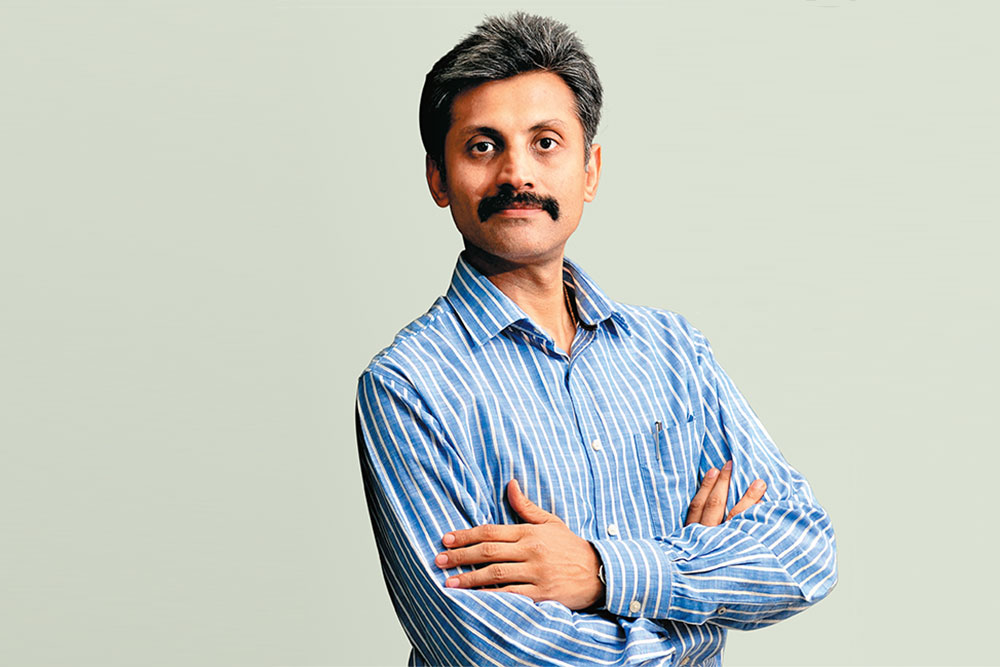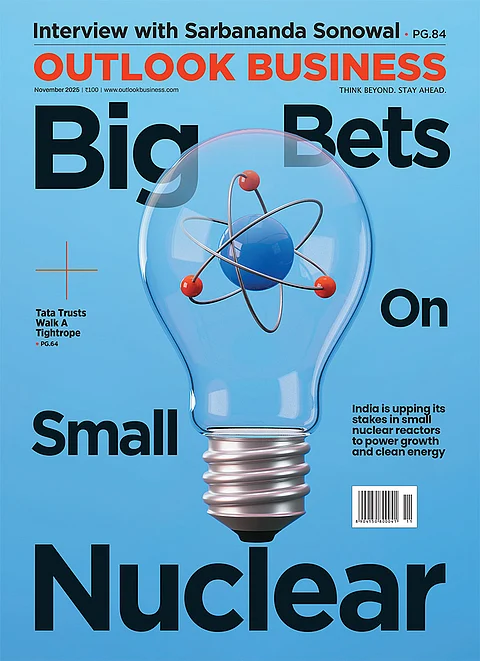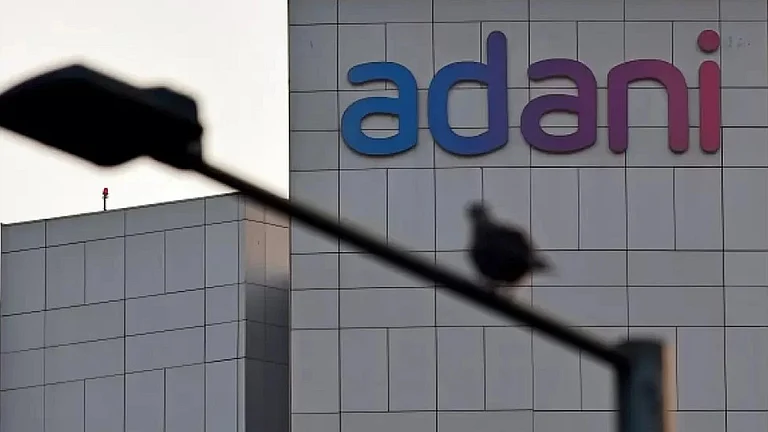Abhishek Dalmia first hit the headlines with his bid for what was then known as GESCO Corp. A takeover battle ensued and it took quite some firepower from established business heavyweights to get him to agree to a ceasefire. Of late, Dalmia is busy shepherding Revathi Equipment with the much larger intent of making it a holding vehicle, à la Berkshire Hathaway, for his future investments. Dalmia is one of the very few owner-managers in India who is attempting to walk down Warren Buffett’s path
As you approach the end of your formal education, you are faced with one big question — what next? While the question is simple enough, the answer is anything but. To be able to come up with a good answer, you need to be able to answer another seemingly simple question — do you know yourself? For those who think this is a philosophical question, here is a reality check. Until you have a fair idea of what you are good at and equally importantly, what you are not good at, how do you expect to pick a career where you might excel? Happy accidents aside, the need to answer the “know thyself” question is as important in the professional context as it is in the spiritual. In my own case, I took the easy way out until I had a better answer — I joined the family business. But, although my mind was occupied, my heart continued seeking answers to this existential question.
While in my teens, I had heard of Warren Buffett as being one of the richest people in the world and that he did only two things — allocate capital and set compensation for top management. Those words had stayed with me for about a decade after I had first heard them. One day, at a bookshop, The Warren Buffett Way caught my eye. It was a thin book and I bought it out of sheer curiosity. It was the first in a series I then read on Buffett and investing. I also devoured Buffett’s letters to his shareholders written over two decades, starting 1977.
One of the tell-tale signs of a good teacher is that he cuts out the arcane and presents his ideas so simply that the subject comes alive. That is the exact effect Buffett had on me. In fact, the ideas were presented so well that they seemed all too easy. The concept was to buy businesses that generate free cash and use that free cash to buy more businesses. Simple enough. Charlie Munger had once said that though it is simple, it is not easy. I was to find out why…
Embracing the unfamiliar
The first obstacle to getting started was within — how do you step out of your comfort zone of running an established family business to try out something completely new? After some months of living with the thought, I broached the subject with my father. To suggest that we sell off the family silver to buy a new company would have been all too radical. So, I suggested that we start investing relatively small sums in public equities. That would give me practice in identifying well-run businesses without betting the house. Once I had built my self-confidence of doing a half decent job of identifying good businesses and making money thereof, I could up the ante and hopefully encounter lesser resistance when writing out bigger cheques to
acquire businesses.
To my surprise, even the idea of investing in public equities was too radical. My father tried to coax me out of the idea. He strongly felt that investing in equities was like putting hard earned money in what he called the satta bazaar. Given the lens through which he had seen the stock market (in the decades leading up to the 1990s), he could not be faulted for his views. And yet, based on what I had read about value investing, it seemed like a wonderful world — no meetings, no managing people and their moods, no dealing with the government or the bureaucracy and, of course, no running operations! A world where you are the master of your time and can use that to compound wealth by focusing on industries you understand and enjoy learning about!
After some months, my father agreed to seed the new venture with a few lakh rupees. My new journey had started. Surprisingly, within a few years of getting started we, as a family, reached a fork. We had to decide if our future lay in the family business, where there were too many family members trying to run a commodity business, or would we build our lives afresh by implementing the principles around which Berkshire Hathaway was built.
After a few years of having tasted some success in value investing, and this while continuing to be engaged in the family business, I, personally, was ready for the transition. Understandably, both my parents were quite uncomfortable about giving up on the family business, which had been built by my grandfather over decades, to start life afresh. But despite their hesitation, they backed me completely.
Now that we were on our own, the onus was on me to build the “new” family business. After our separation, the plan was to use the capital we had to try and acquire good businesses. But we had no clue how to go about looking for opportunities. Until we figured that out, we continued investing in public equities. This was around the turn of the millennium, and what a time it was. The entire investing community was tripping over each other to buy TMT (telecom-media-technology) stocks as though there were no tomorrow. On the other hand, there were huge swathes of the market that were languishing as if those industries were on death row. We were able to buy stocks with dividend yields in the high single digits!
Of course, being new to the game, we got carried away by the euphoria and bought some real blue chips such as Infosys and Hindustan (Uni)Lever and also some others that were regarded as evergreens such as Zee Telefilms. Through those stocks, we learnt a very important lesson early on — if you practise hard core value investing, the quality of the business or the management almost does not matter. What matters more is what you pay for what you are buying. We were one of the unfortunate few who actually lost money on Infosys (and HLL and Zee)! On the other hand, we made tons of money on ordinary companies in staid industries such as banking and even textiles. We learnt that, regardless of how ordinary (or less than ordinary) an asset is, it is worth something. And when you buy anything at a deep discount to that “something”, it is hard to lose money. Paradoxical though it may sound, the more we focused on not losing money, the more money we made. And the more we focused on future upside based on earnings growth and re-rating of the price earnings multiple and other complex concepts, the harder we fell.
Old-fashioned conservatism paid off better than sophisticated financial modelling, something Buffett also alludes to. I consider Buffett a great businessman not only because of the model he follows — which is to invest in good businesses that generate free cash — but also because of his personality traits. He is a massively intelligent left-brain thinker, with an analytical mind and immense power of concentration. He is also frugal, morally upright and has an immense hunger — as well as an incredible fear of losing money. While I try and emulate him, the last, though, is not in my DNA — I think I’m reasonably entrepreneurial and taking risks means losing some times.
Coming full circle
Meanwhile, destiny was getting ready to deal me my next hand. I was approached by a leading investment bank to look at an opportunity to acquire a company. The financials were impeccable and the pedigree rock solid. Buffett has said on many occasions that do not invest until the opportunity jumps out at you. This one did. The company was sitting on cash of about 40% of the price expected by the seller. There was no debt and the price earnings multiple, adjusted for the cash on the books was, hold your breath, six. The earnings were fairly stable and would likely remain so. Though the decision was made within the first few days of examining the opportunity, it took nearly 18 months for us to get control. We were in no hurry since cash was building in the company from all the accumulated earnings and by the time we got control, the cash in the company was about 65% of what we paid for acquiring a controlling interest in the business. In classic Buffett mould, we decided to follow the maxim that if it ain’t broke, don’t fix it. No change in the business model, no change in the management team, no changes in anything. And the profits continued to roll in.
But life was switching gears once again. When God sent me the opportunity to acquire that business, he also sent me a subtle message, “Son, you ought to enjoy the richness of experience that comes with running a business”. It took me some time to grasp that message, since after years of studying Buffett, I had reached the conclusion that one could own a business, without having to run it yourself. As they say, God lies in the details. And so it was in this case. Buffett had bought mostly family businesses of a certain size, which had critical mass, where the founding family continued to run the business. We, on the other hand, had acquired a small business that was run by highly conservative professionals. They were very good at maintaining status quo, but were not the greatest entrepreneurs. Also, I found out much later that there are businesses in the Buffett portfolio that he is actively involved in, to the point of setting the price at which goods will be sold. It is also well known that he speaks with Ajit Jain, who runs Berkshire’s super-catastrophe insurance business, every day. That is quite different from investing in public equities, where you buy an undervalued asset and wait for Mr Market to realise his folly.
From being a purely passive owner, realisation was dawning that to bring change, I needed to learn the business well enough to make a persuasive case to shake people out of their comfort zones. While the free cash was deployed well, the business that was generating the free cash was beginning to demand greater attention. Overheads had been growing faster than growth in revenues and it was becoming obvious that if we did not change course, we would be staring at a profit squeeze. The realisation dawned that I would need to play a more active role in management. The wheel had come full circle — from selling the family business to turning full time investor to going back to running a business, though admittedly not in a very hands on manner.
As an owner-manager, I have found it easy to apply several of Buffett’s principles, such as being frugal, morally upright and not having a big ego. What has been difficult to apply — and not because of intent but due to the business environment — is staying debt-free and investing in businesses that generate free cash (not all our investments meet this condition). But, by and large, I have tried to internalise his main lessons and applied them to my business as well as investing philosophy. My salary, for instance, has remained fixed since we acquired the business!
Tough times, tough people
Things got really shaken up after the Lehman bust. The market suddenly dried up, no one seemed to have any cash to pay for goods bought and no one seemed to have any good answers of how to deal with the situation. Life had jolted me out of my stupor. My engagement with the business got deeper with every passing month. This time around, however, it was a conscious and a well thought out decision.
I am sure there will be many more transitions before life comes to rest. There remains a question about what I would do differently if I were to relive the past. There are a few things, which would qualify, but only a few.
One is that I would not get into capital-intensive greenfield ventures without having a deep understanding of the industry. Of course, there is no way to know an industry fully until you are neck-deep in it. Having said that, one can derive a lot about an industry that is similar to one you may already be in. You could also learn by talking to close friends who have some understanding of the industry. But even after all that knowing, if I am uncomfortable in the gut, I will take a pass.
The second thing I would do differently is that after making an investment into a new business, I would become more hands-on early on. Once you gain a good understanding of a business, you can decide to bring professionals and let them do the day-to-day heavy lifting.
Lastly, I would always want to keep a certain amount of cash at my disposal. Life is uncertain. And just like we plan our personal affairs by stashing away some money for a rainy day, I would keep some cash in reserve for a rainy day. For rainy days do come every time the business cycle turns or there is a discontinuous shift in an industry’s landscape. The depth and length of those days cannot be predicted in advance. And having cash at such times can be both, a safety net as well as a weapon to capture interesting opportunities.
A final thought. Life does seem challenging from time to time. Even daunting. But as long as you stay the observer and distance yourself from the situation, you can maintain a cool head and look at it dispassionately. That allows for a better quality mind to find a solution. Also, though it is an oft-repeated cliché, the toughest moments in life are the best in terms of personal growth. Embrace them and you won’t regret it once the storm has passed. And finally, nurture some interests outside your work. I have been personally involved with educating the underprivileged through a Gurgaon-based NGO called Literacy India. Such pursuits are great sources of finding meaning in life, not to mention their stress busting traits.











